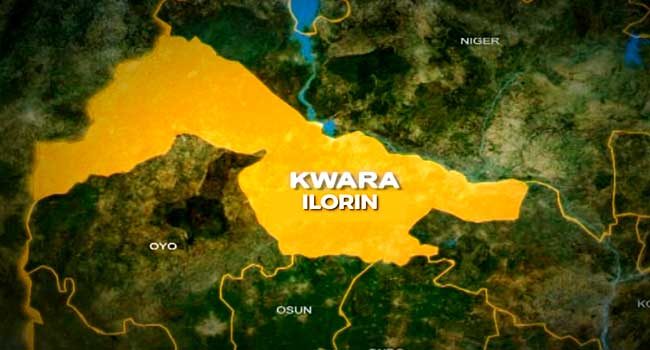Kwara State, long celebrated as an oasis of peace in Nigeria’s troubled North-Central region, is experiencing a disturbing transformation. While neighbouring states like Plateau, Niger, and Benue have endured years of devastating violence from bandits and killer herdsmen, Kwara remained relatively secure, with security concerns limited primarily to occasional armed robbery incidents.
That comforting reality has been shattered in recent months by a coordinated wave of bandit attacks that threaten to replicate the chaos consuming other parts of the region.
The escalating violence in Kwara tells a story of systematic criminality spreading like wildfire across communities previously insulated from such terror.
The August 8, 2025, attack on Babanla village in Ifelodun Local Government Area, where over 200 armed men on motorcycles stormed the town, looted a market, burned down the police station, and killed five people including a police officer, represents the kind of brazen assault previously unthinkable in Kwara.
When bandits can mobilise such numbers to attack government installations with impunity, the situation has clearly moved beyond ordinary criminality into organised insurgency.
The pattern of attacks reveals sophisticated criminal networks operating with disturbing efficiency. The kidnapping and execution of Reverend James Audu Issa in Patigi Local Government Area demonstrates the ruthlessness of these gangs. Despite the community paying a ₦5 million ransom, the kidnappers demanded an additional 45 million and murdered the pastor when no further payment materialised.
This brutal killing sends a chilling message about the futility of negotiating with criminals who recognise no bounds of decency or honour.
The September 28 massacre at Oke-Ode, where at least 15 people, including the community’s traditional leader, were slaughtered and several others kidnapped, represents a watershed moment for Kwara’s security situation.
Eyewitness accounts describing how victims were killed “like chickens” and the forced displacement of residents from their farms and homes indicate that banditry in Kwara has reached the levels of violence that have devastated other North-Central states.
The spillover effects from Kogi State, particularly the Yagba West axis, cannot be ignored. The coordinated attacks that killed over 27 people in a single day in Kogi’s Yagba West Local Government Area, combined with incidents along the Kwara-Kogi border, indicate that bandit networks are expanding their operational territories.
The porous border between these states allows criminals to move freely, launching attacks in one state before retreating to hideouts in another.
Governor AbdulRahman AbdulRazaq’s response demonstrates an appropriate level of urgency in addressing this crisis. His direct engagement with President Bola Tinubu and his request for additional federal security deployment demonstrate a recognition that state resources alone cannot contain this threat.
The governor’s consideration of establishing a state security force recruited from local communities represents a pragmatic approach to sustainable security architecture. Local security personnel with intimate knowledge of terrain and community dynamics can complement federal troops in ways that external deployments cannot.
However, such state security forces must receive adequate training, equipment, and legal framework to operate effectively within constitutional boundaries.
The Senate’s call for a permanent military base in Kwara South acknowledges that temporary deployments cannot address entrenched security challenges. A permanent military presence provides deterrence, rapid response capability, and sustained intelligence gathering that rotating units cannot achieve.
The federal government must prioritise this request given the strategic importance of preventing Kwara from descending into the chaos that has consumed neighbouring states.
The Kwara State Government’s dismissal of reports claiming that nine of 16 local government areas are under bandit control, while reassuring the nation, should not minimise the genuine security concerns facing several communities.
Yes, no local government has been completely taken over. Still, when bandits can launch attacks with hundreds of fighters, kidnap citizens with impunity, and force communities to pay millions in ransom, the distinction between “under attack” and “under control” becomes academic for affected residents.
In our view, the connection between the Kwara crisis and broader North-Central insecurity patterns cannot be ignored. Bandits driven from one state by military pressure relocate to areas with weaker security presence.
Without coordinated regional security strategy involving all North-Central states, victories in one location merely displace problems to neighbouring areas. The federal government must facilitate interstate cooperation that prevents bandits from exploiting jurisdictional boundaries.
The federal government must recognise that allowing Kwara to descend into insecurity represents both a humanitarian failure and a strategic mistake. Kwara’s location, connecting the North and South, makes its security crucial for national cohesion and economic activity.
The people of Kwara deserve better than watching their state transform from a haven of peace into another theater of bandit violence.
The federal government must act decisively to establish the military base requested by the Senate, provide adequate resources for security operations, and coordinate regional strategies that prevent bandits from exploiting state boundaries.





